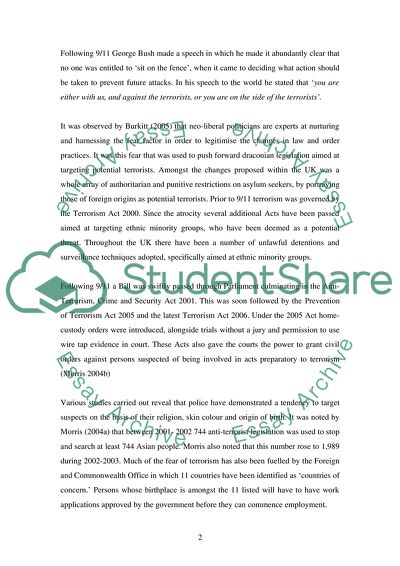Cite this document
(Is It Reasonably Possible to Reconcile the Demands of Anti-Terrorism Coursework, n.d.)
Is It Reasonably Possible to Reconcile the Demands of Anti-Terrorism Coursework. https://studentshare.org/social-science/1719497-human-rights
Is It Reasonably Possible to Reconcile the Demands of Anti-Terrorism Coursework. https://studentshare.org/social-science/1719497-human-rights
(Is It Reasonably Possible to Reconcile the Demands of Anti-Terrorism Coursework)
Is It Reasonably Possible to Reconcile the Demands of Anti-Terrorism Coursework. https://studentshare.org/social-science/1719497-human-rights.
Is It Reasonably Possible to Reconcile the Demands of Anti-Terrorism Coursework. https://studentshare.org/social-science/1719497-human-rights.
“Is It Reasonably Possible to Reconcile the Demands of Anti-Terrorism Coursework”. https://studentshare.org/social-science/1719497-human-rights.


